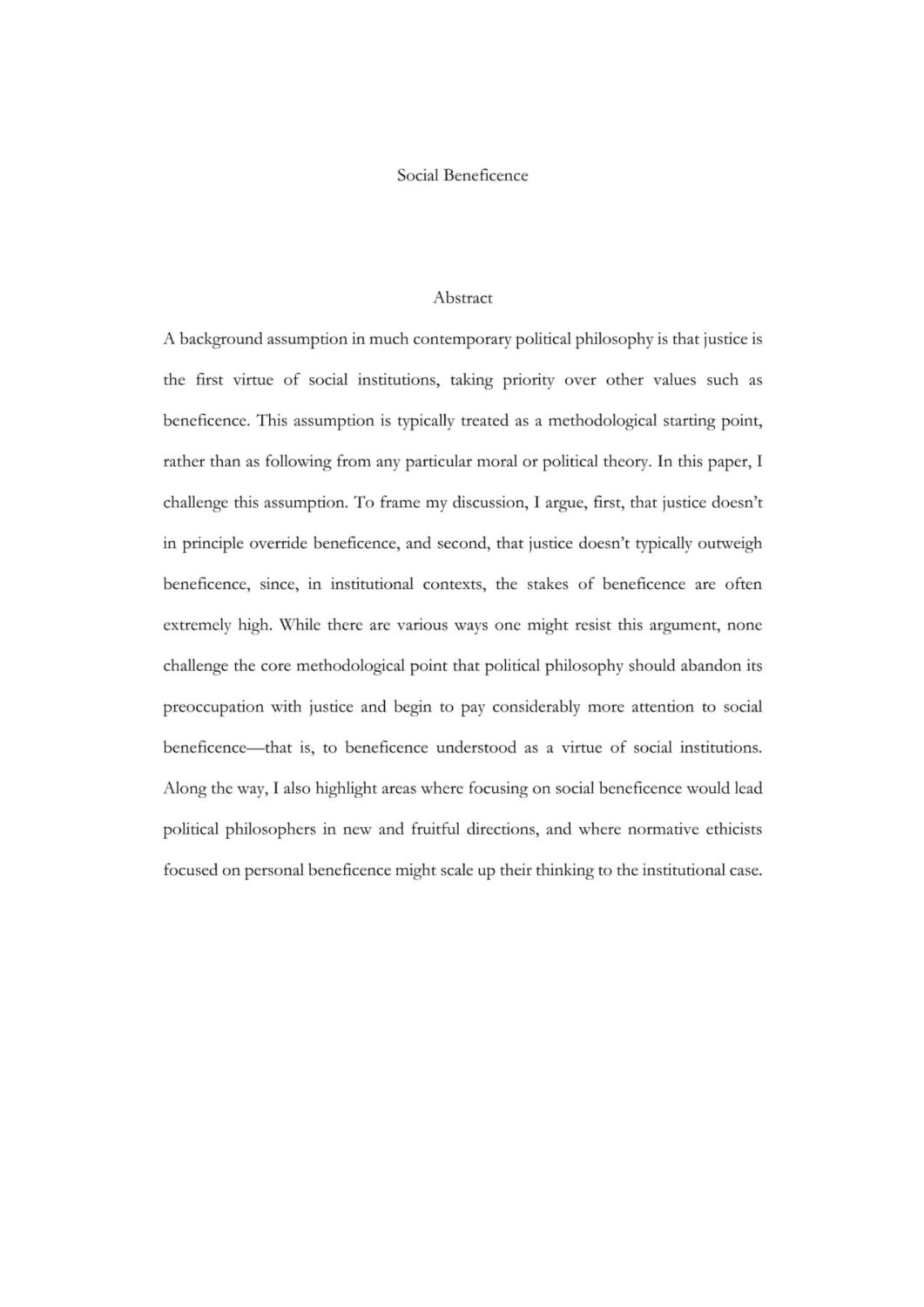Social Beneficence
Jacob Barrett (Global Priorities Institute, University of Oxford)
GPI Working Paper No. 11-2022
A background assumption in much contemporary political philosophy is that justice is the first virtue of social institutions, taking priority over other values such as beneficence. This assumption is typically treated as a methodological starting point, rather than as following from any particular moral or political theory. In this paper, I challenge this assumption. To frame my discussion, I argue, first, that justice doesn’t in principle override beneficence, and second, that justice doesn’t typically outweigh beneficence, since, in institutional contexts, the stakes of beneficence are often extremely high. While there are various ways one might resist this argument, none challenge the core methodological point that political philosophy should abandon its preoccupation with justice and begin to pay considerably more attention to social beneficence—that is, to beneficence understood as a virtue of social institutions. Along the way, I also highlight areas where focusing on social beneficence would lead political philosophers in new and fruitful directions, and where normative ethicists focused on personal beneficence might scale up their thinking to the institutional case.
Other working papers
Concepts of existential catastrophe – Hilary Greaves (University of Oxford)
The notion of existential catastrophe is increasingly appealed to in discussion of risk management around emerging technologies, but it is not completely clear what this notion amounts to. Here, I provide an opinionated survey of the space of plausibly useful definitions of existential catastrophe. Inter alia, I discuss: whether to define existential catastrophe in ex post or ex ante terms, whether an ex ante definition should be in terms of loss of expected value or loss of potential…
The scope of longtermism – David Thorstad (Global Priorities Institute, University of Oxford)
Longtermism holds roughly that in many decision situations, the best thing we can do is what is best for the long-term future. The scope question for longtermism asks: how large is the class of decision situations for which longtermism holds? Although longtermism was initially developed to describe the situation of…
Staking our future: deontic long-termism and the non-identity problem – Andreas Mogensen (Global Priorities Institute, Oxford University)
Greaves and MacAskill argue for axiological longtermism, according to which, in a wide class of decision contexts, the option that is ex ante best is the option that corresponds to the best lottery over histories from t onwards, where t is some date far in the future. They suggest that a stakes-sensitivity argument…

